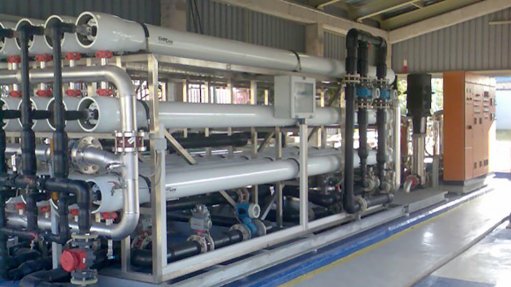
Sustainable water and wastewater solutions company Talbot is delivering high-tech water purification plants which enable large gold, platinum and other mining clients to make use of mine water to reduce municipal water consumption and associated bills.
Projects are offered on a turnkey basis over a 36 to 120-month lease-to-own arrangement, treating upwards of 4 million litres of groundwater per day.
“The majority of South African mines are situated in water scarce regions which means that their reliance on municipal reserves for operational activities puts additional strain on a community resource that is already under severe pressure,” says Talbot Consulting Services general manger Claire Lipsett.
“Our clients ultimate aim is to reduce or do away with the use of municipal water in their production processes by investigating and developing other opportunities, one of them being to optimise alternative natural underground reserves,” she says.
These projects represent the first step in this process of operational independence and typically reduce municipal water usage by as much as 30%.
The lease-to-own arrangement is particularly attractive to large water users as they can enjoy the benefits of high-quality water treatment without incurring up-front capital costs.
The plants are designed, built, operated and maintained by Talbot for the duration of the contract period while the client pays a fee per litre for clean water produced, typically between R5/kl and R12/kl, which can be significantly less than the cost of municipal water.
“Customers are hesitant to invest capital into facilities without production guarantees. This solution removes the risk; clients only pay for the water they get and ultimately take ownership of the asset once they are absolutely assured of its efficacy and fitness for purpose, at the end of the contract period,” says Lipsett.
Plants vary in design but typically consist of a combination of oxidation, chemical treatment, membrane filtration and sterilisation in containerised or skid mounted modules that enable rapid project execution and minimal civil requirements. All with no upfront cost from the client.